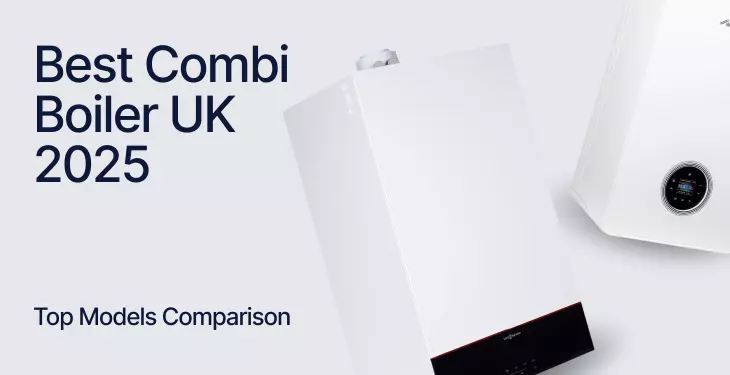Updated: 30th May, 2025

As disruptive as the Coronavirus pandemic has been to our regular lives, some are wondering if it was a disruption we all needed in order to save the planet.
Since the pandemic, headlines such as “Coronavirus Causes Largest Annual Fall in CO2 Emissions.” and “Dolphins Return to Venice Canals” went viral.
Although some are inaccurate and are purely clickbait, the positive side effects of the pandemic on the environment have made global news and were trending on social media for weeks.
It seems that many people were of the opinion that their routines were so set in stone that nothing could be done to reverse the effects of climate change.
However, within just a few weeks of our lives being completely changed by coronavirus, the lack of human activity began to show a positive impact across the planet.
Since industries, transport networks and businesses have been put on pause, there has been a sudden drop in carbon emissions. For example, levels of pollution in New York reduced by almost 50% as a result of the measures put in place to contain the virus. Certainly a silver lining!

The government is taking this time as an opportunity to introduce schemes and plans that will help reduce CO2 emissions. A plan to invest £2 billion into greener transport was introduced in the March Budget. This included offering incentives for businesses to start using Battery Electric Vehicles (BEVs) and Plug-in Hybrid Electric Vehicles (PHEVs). A tax rebate of almost £200 a month will be available to businesses with electric company cars or fleets.
An attempt to make more transport electric has been made with the introduction of e-scooters. With emptier roads thanks to lockdown, there have been areas designated for the trialling of e-scooters to ensure riders feel safe when out on the roads.

E-scooters have proven to be popular, and less harmful to the environment that cars/buses, in cities around the world including San Francisco, Paris and Copenhagen.
By using e-scooters, you could be seriously helping to reduce pollution as they only use a small amount of electricity and don’t emit any emissions whatsoever. This makes them three times more efficient than combustion engines!
One study estimated that e-scooters are over 1000% more efficient per mile than the average road vehicle based on the energy that’s needed to power them.
On Wednesday 8th July 2020, the Chancellor of Exchequer, Rishi Sunak announced the government’s plans for a new scheme called The Green Homes Grant.
This scheme will be providing thousands of households with vouchers of up to £5,000 to be spent on energy efficiency improvements, as well as supporting over 100,000 green jobs. For low income homes, vouchers of up to £10,000 may be claimed.
There is a strict criteria on what home improvements are and aren’t eligible. The measures the vouchers can be spent on are divided into two categories; primary and secondary.
Primary measures are improvements that will make the biggest difference to energy efficiency in your home such as insulation (which in turn tend to be more expensive.)
In order to use your voucher, you must have at least one primary measure. You can then spend the remaining on secondary measures such as double glazing, though it’s important to note that you cannot spend more on secondary measures than on your primary measure.
To ensure you make the most of the government grant, you should carefully plan out how to stretch out the funding and which options could benefit your home most.
Here are some specific examples of what the vouchers can be used on:
Insulation is an incredibly cost-effective method of reducing your heating requirements and cutting back on energy bills. Loft and cavity wall insulation can cost between £400 - £1,000, though it can save you up to £160 a year on energy bills, essentially paying for itself in the long run.
Double glazed windows can reduce heat loss from your home by 30% compared to single glazed windows. Not only can they help you save energy but they also reduce noise from outside.
A smart thermostat is a device that connects your heating system to the internet, allowing you to control your heating from your mobile phone or laptop.
The most convenient feature of a smart thermostat is the ability to control your heating from just about anywhere but the idea behind a smart thermostat is not just convenience.
By giving you full control of your heating from wherever you are, you can make your heating schedule more accurate and therefore avoid wasting energy on heating when you’re not at home.
Many smart thermostats have energy-saving settings that can also help you to cut down on your carbon footprint. Most smart thermostats also offer ‘zoned heating’ which allows you to independently heat different parts of your home which can also reduce wasted energy.
It’s no surprise that low energy consumption = low fuel bills. By saving energy, you’re not only helping the environment but you’re also helping to cut your costs each month.
Energy Performance Certificates (EPCs) and building surveys not linked to a retrofit
Asbestos removal
Damp proofing
Electricity or gas safety work
Boiler repair or replacement
Many people were hoping that a new boiler would be covered by the vouchers. After all, the Energy Saving Trust estimates that you could be saving up to £380 annually on your energy bills by replacing your boiler and having an inefficient boiler can cost you a lot more money on fuel bills than if you replaced it with a brand new A-rated combi boiler.
Despite this, the government is only willing to cover the cost of a biomass boiler as opposed to a combination boiler.
If you were hoping to purchase a new, efficient boiler for an affordable price then iHeat has you covered. We install affordable, high quality and efficient boilers with a payment plan that suits you.
Click here for a free fixed quote.
Before applying for the Green Homes grant, you should visit Simply Energy Advice, a Government endorsed website, to check your eligibility and decide on which improvements are suitable for your home.
You must then find TrustMark registered tradespeople to offer quotes to carry out the work. Once you have your quotes and the licence number of your chosen tradesperson, you can apply for the grant via the government website.
Click here for more information about The Green Homes Grant Scheme


29th September, 2025
Here’s a quick roundup of the best combi boilers for 2025.
 Read Article
Read Article

24th September, 2025
Looking for the most reliable boiler brands? Check out our comprehensive guide that compar...
 Read Article
Read Article

24th September, 2025
iHeat's guide to the best boilers for big families and larger properties. We explain the d...
 Read Article
Read Article